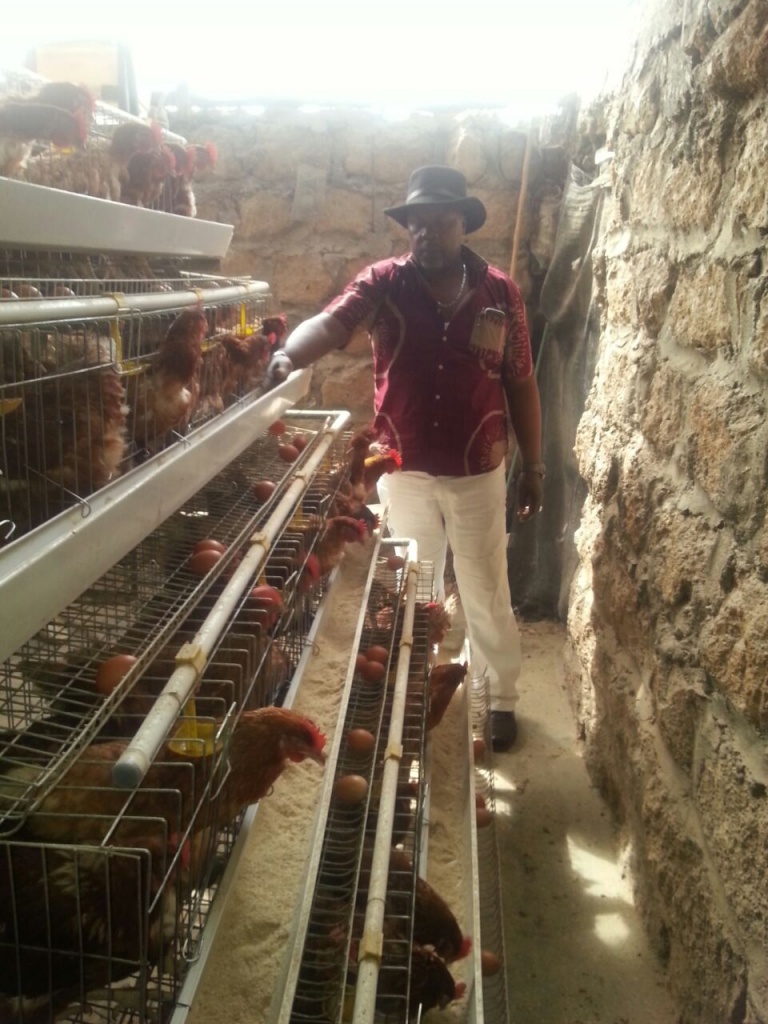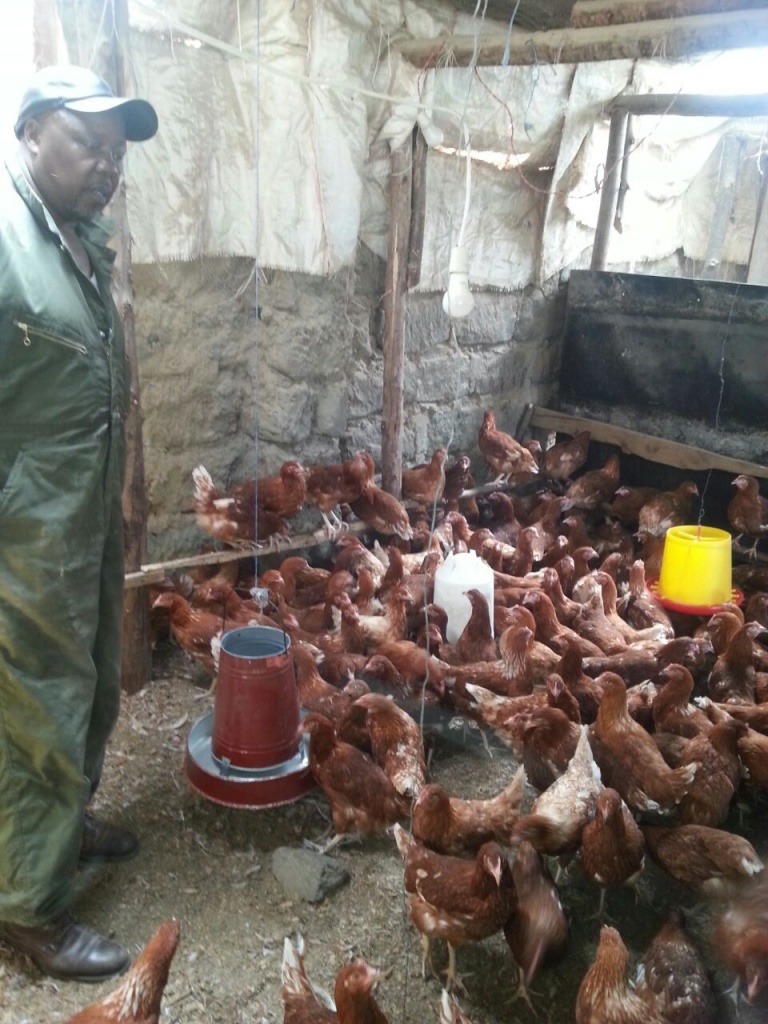
Mr. Henry Njuguna inspects his poultry farm in Naivasha. Before he had between 150-200 chicken which has increased to 1200 over the recent past.
In a time when most poultry farmers are crying foul about high cost of chicken feeds, drugs, among other production costs and market fluctuations, a Naivasha poultry farmer is managing his production costs by rearing many chicken to meet his economy of scale target.
Henry Njuguna of Kingdom Poultry Farm in Naivasha says poultry farming is enjoyable if a farmer has a big number of chicken because this saves extra transport, feed and drugs costs as compared to small number of chicken which requires the same services almost at the same costs but with lesser output thus lower income.
“It does not mean one must start big with poultry farming but good number of chicken saves a farmer much when it comes to production cost,” said Njuguna.
RELATED NEWS: Proper indigenous chicken management increases production
He keeps more than 1600 layers in a 50 by 100 piece of land. 1200 are growers of 14 weeks old and 600 layers which are over 20 weeks old. For growers of 8-20 weeks of age, he gives 80gm of growers mash per bird per day. To birds of over 20 weeks of age he feeds 120-130gm per bird, per day of layers mash.
Njuguna buys his feeds from Naivasha Feeders. A kilogram of growers’ feed is Sh30 and that of layers is Sh40. This means in 12 weeks he gives growers a total of 9kg and layers 10.08kg of feeds resulting to Sh270 for growers and about Sh400 for layers.
Because he uses personal transport, Njuguna cuts down his expenditure by 20 per cent monthly if he were to rely on public transport. He supplies his eggs to some of the big hotels in Naivasha on a weekly basis, tenders he is able to win due to his bigger production. Fuel takes about Sh500 and labour Sh1500. This he says is the same expenditure with the farmer with less chicken.
“I collect between 12-15 eggs on a daily basis and by the end of the week I have enough to meet the high demands in town,” said Njuguna. “My cost of transport and labour is almost the same with that farmer with less than 200 chicken,” he added.
RELATED NEWS: Farmers are making a kill with Kenbro chicken
Before he had between 150-200 chicken as he was starting up in the venture. Transport cost him Sh1200 while labour Sh2000, double the amount he is using now. He also had difficulties with winning eggs supply tenders as he fell short of the demands.
Njuguna buys eight weeks chicks from Kenchick costing him Sh110 per chick. With this he avoids the cost of feeding which is Sh45 per kilogram per chick saving about Sh75,600 that he could spent in eight weeks.
Njuguna owes his success from trainings and agricultural shows he attends. He says poultry farming is tricky and a farmer can incur losses even from unnecessary wastages which arises from a number of things like poorly designed feed troughs which can result to 10% of the feed is wasted.
“When feeders are half-filled, only 3% of the feed is wasted than when it is two-thirds-full. Wastage also arises from theft by rats and wild birds if they have access to the poultry unit,” said Njuguna.
He says their main challenge as poultry farmers is cheap imported eggs which disrupts local prices.
RELATED NEWS: Rearing over 80 chickens on a two by two metres space

Mr. Henry Njuguna in his poultry farm.
















Comments powered by CComment